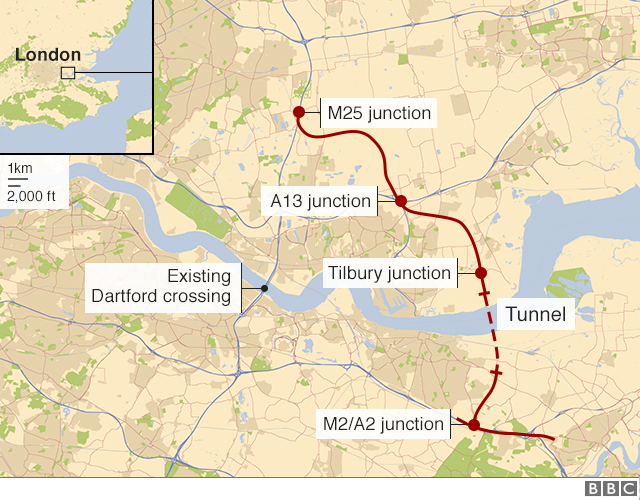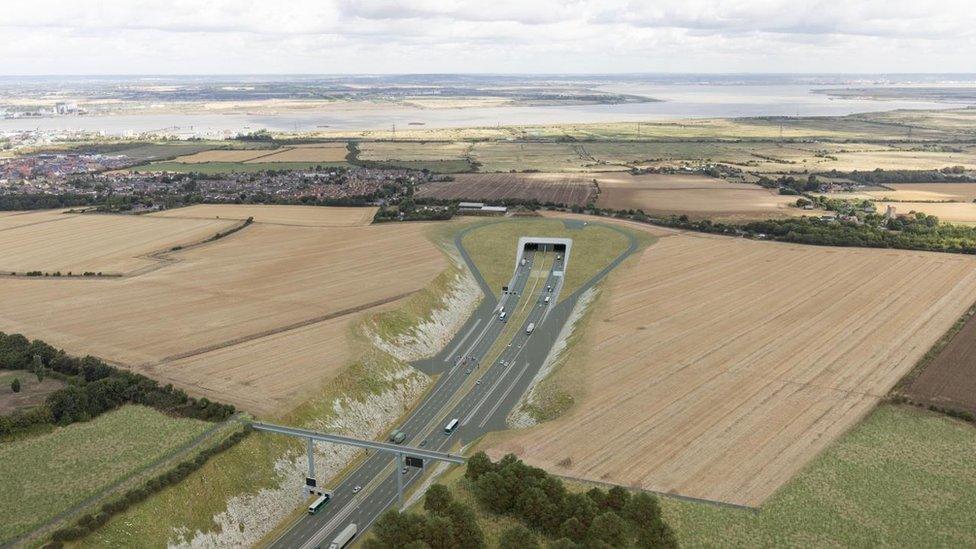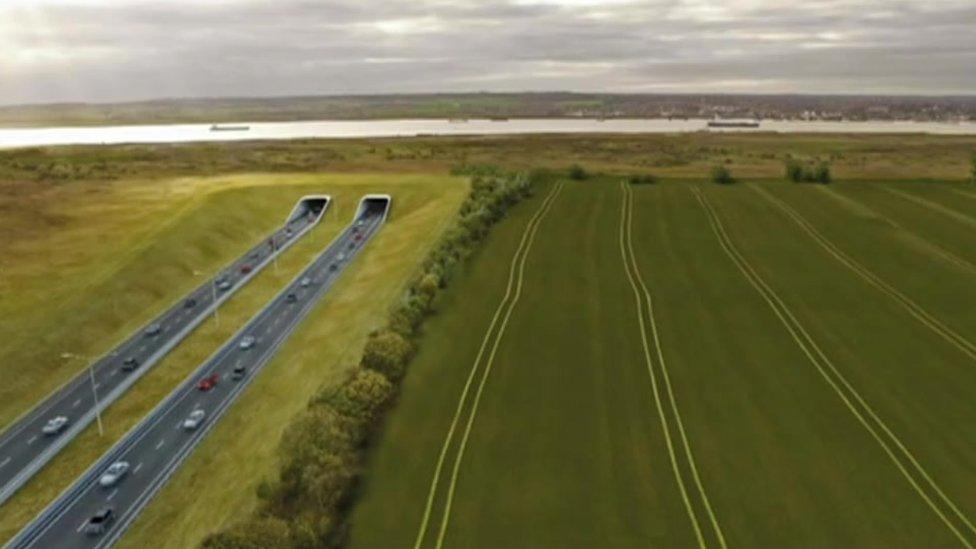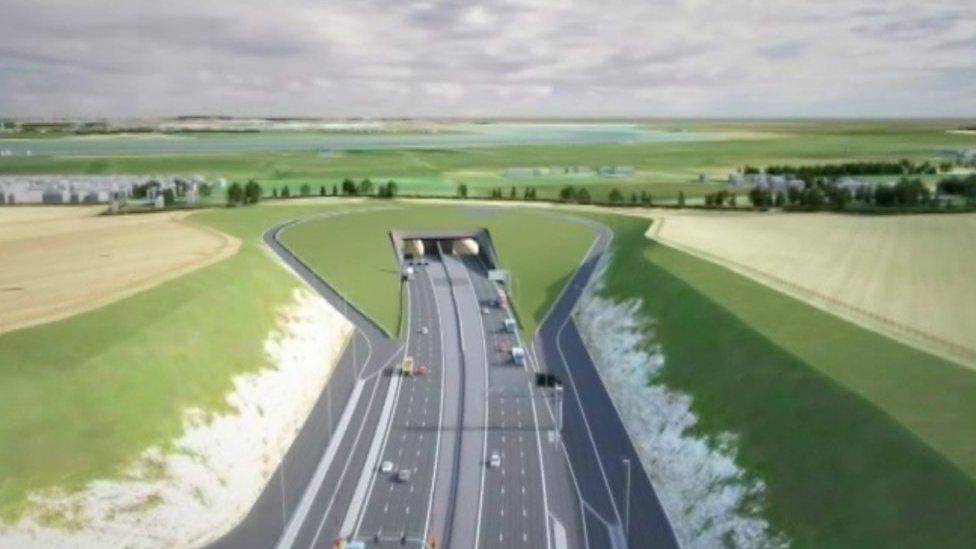Lower Thames Crossing to be 'biggest road project since M25'
- Published
- comments
Virtual flyover of new Lower Thames Crossing
A new road linking Kent and Essex would almost double capacity across the River Thames, Highways England has said.
The route of the new road tunnel under the river would also almost halve the northbound crossing times at the Dartford Crossing, the agency said.
It is claimed the scheme, for which motorists will be charged, will be the largest road upgrade project since the building of the M25.
Friends of the Earth said the crossing would lead to more air pollution.
Jenny Bates from the environmental group said: "It's astonishing that in the week the UN is warning of the need for urgent action to avoid catastrophic climate change, the UK government is boasting about building more roads.
"This road development will only encourage more cars, vans, lorries and traffic, pumping more air pollution and climate-damaging emissions into our environment.
"Politicians need to take their foot off the accelerator in order to protect the planet."
Motorists 'charged'
The planned new 14.5 mile (23km) long three-lane dual carriageway would connect the M2 near Rochester and the M25 in Essex between North and South Ockendon and include a 2.4 mile (3.8km) tunnel between Gravesend and Tilbury.
Tim Jones, project director for the Lower Thames Crossing, told the BBC there will be a charge for using the crossing.
He said: "We are going to ask people's view on a variable charge because we think that my be more suitable."
He said the charging structure will be part of the 10-week public consultation, external on the latest designs for the crossing.
"It's not a toll and it will continue. A toll is normally to pay for a piece of infrastructure - this will be a user charge."
Adam Holloway, the Conservative MP for Gravesham in Kent, said: "The M25 will always run through Dartford and building this road will make very little difference to the people of Dartford in terms of the amount of traffic.
"I think the new proposals are great - they are just what we've been asking for, with the tunnel entrance further south and a deeper road, but it's very grim for the people who live there."
Route of planned new crossing


Transport Secretary Chris Grayling said: "The Lower Thames Crossing will help transform journeys, create new business opportunities in Kent and Essex and unlock productivity across the UK."
A spokesman for Highways England said the new tunnel would be the longest road tunnel in the UK - and at over 50ft (15m) wide would become the third-largest bored tunnel in the world.
He said the updated designs "include significant changes to minimise the impact on local communities and the environment".
Edmund King from the AA said the Seine in Paris has "almost twice as many river crossings as we have over or under the Thames" and the proposed tunnel is "essential new infrastructure".
RAC Foundation director Steve Gooding said: "It is vital this project is got right so that it delivers benefits not just for drivers travelling from one end of the country to the other, but also residents of Kent and Essex for whom the Thames often seems like an unbridgeable barrier."

New designs for the tunnel entrance make the entrance 600m further south to reduce the impact on the landscape, Highways England said
You may also be interested in:
Mr Jones said: "For too long the Dartford Crossing has been the only way to get across the Thames east of London. It is a vital gateway but carries more traffic than it was ever designed for and drivers there suffer from regular delays.
"The Lower Thames Crossing is the most ambitious project of its kind ever in the UK and the biggest single road upgrade since the M25 was completed more than 30 years ago.
"It would almost double road capacity across the Thames."
The Green South East MEP Keith Taylor said the tunnel was "inducing traffic rather than reducing congestion".
He said: "The estimated £6bn earmarked for the new crossing should be redirected towards innovative and truly sustainable 21st Century alternatives, including projects to move freight from our roads on to the rails, seas, and waterways.
"We also urgently need investment in integrated and affordable public and active transport networks, directed by local communities, which will reduce traffic and markedly improve the quality of life for residents in Kent and beyond."
Public information events, external are being held in Kent and Essex between 20 October and 5 December.
- Published12 April 2017

- Published10 October 2018
